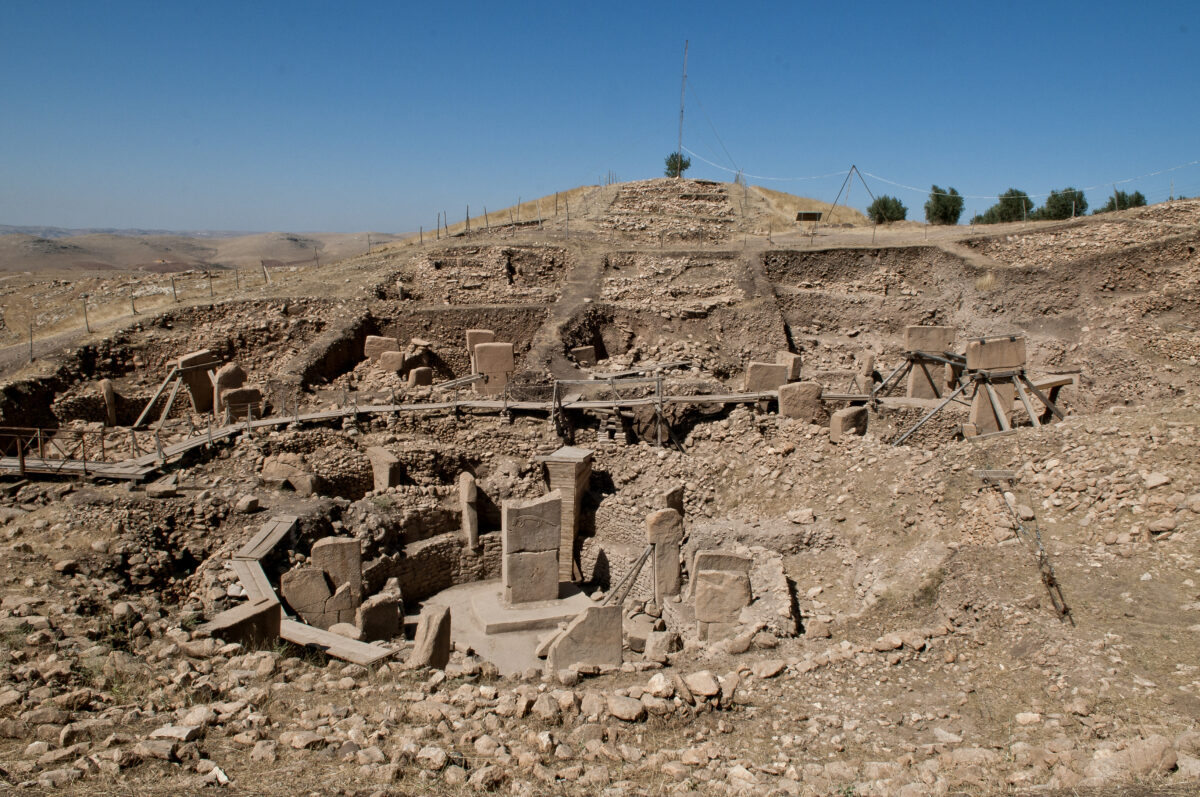10,000 Year-old Monolithic Complex
The discovery of Göbekli Tepe in southern Turkey challenges everything we previously knew about early human civilizations. This massive, monolithic site, with over 90% still unexcavated, dates back over 10,000 years.
Göbekli Tepe is a significant archaeological mystery, comparable to the pyramids. Recent studies of the symbols on its pillars suggest that the site might record an astronomical event that marked a major shift in human civilization. Researchers believe the symbols could represent an early solar calendar, used to track time and seasonal changes. The V-shaped symbols might denote individual days, with a pillar showing a calendar of 365 days, 12 lunar months, and 11 extra days. Notably, the summer solstice is marked by a V on a bird-like figure, possibly depicting a constellation from that era. Nearby statues with similar markings could represent deities.
The carvings might represent the world’s earliest lunisolar calendar, predating other known calendars by millennia. Göbekli Tepe also presents evidence that ancient people recorded a comet strike around 13,000 years ago (11,600 BCE), which could have triggered the end of the Ice Age, sea level rises, and shifts in agriculture leading to early civilization.
The discovery also supports the theory that Earth faces increased comet strike risks when crossing the paths of comet fragments, which we see as meteor streams. Dr. Martin Sweatman from the University of Edinburgh, who led the research, noted that Göbekli Tepe’s inhabitants were keen sky observers, likely due to the impact of the comet strike on their world.




